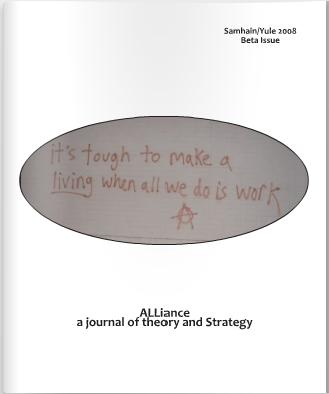Welcome, Antiwarriors
Bob Kaercher hipped me to the fact that my post How do you ask a man to be the last man to die for a mistake? is being featured today at the front page on Antiwar.com. I’m flattered; and presumably this also means that for the time being I’ll be getting a lot of readers who are more or less new to the blog.
So–welcome! By way of introduction, I’m Charles Johnson, also known as Rad Geek.
I’m an individualist anarchist, originally from Alabama, now living in Las Vegas. I am a founding member of the Southern Nevada Alliance of the Libertarian Left and an occasional writer for The Freeman: Ideas on Liberty. If you’re new to the blog, here’s some things you might want to read which will give you some idea of where I’m coming from, and what I care about:
In addition to the Rad Geek People’s Daily, I also run an occasional blog of anti-war cultural artifacts, Dulce Et Decorum Est. I have been writing and organizing against the Iraq War since Bush began his public war-mongering in 2002.
GT 2005-08-09: A day that will live in infamy, GT 2007-12-26: Bomb after bomb, and GT 2009-01-05: In which commentary becomes copy-and-paste explain some of the reasons why I’m not just opposed to The War here and now, but in fact condemn all government wars, on principle, and in all nations and all ages. I don’t believe in
good wars
andbad wars;
in fact, I think that the wars people tend to be most invested in passing off asgood wars
— wars like World War II or the American Civil War — are typically the worst, most ghastly wars in recorded history.GT 2005-09-17: International Ignore the Constitution Day, GT 2007-09-06: Marching orders, GT 2007-12-28: A Higher Law Than the Constitution, GT 2008-07-04: Revolution Day explain why I’m not a Constitutionalist, and why I think appeals to the paper Constitution are either useless or harmful to the struggle for liberty and the struggle to end war.
I believe that the nationalistic violence of the warfare State is closely linked with the paramilitary patrols, police state, and nationalistic violence of government border controls — which are nothing other than international apartheid. See for example:
- GT 2008-05-14: Voyage of the S.S. St. Louis (on the use of government border laws against war refugees)
- GT 2008-01-31: Bordercrats Against Joy and Plenty (on government border controls in the perpetual military siege of Gaza)
- GT 2007-11-12: Sin Fronteras
I also believe that the violence of the U.S. government’s imperial military abroad is closely linked with the repressive violence of (increasingly militarized) paramilitary police forces within the U.S. See for example:
- GT 2008-09-25: How cops see themselves
- GT 2008-09-19: No, seriously, I could swear the water in this pot is getting a little hotter…. (#6)
- GT 2008-05-10: Cops are here to protect you (#3)
And I think that the violence of men’s wars and of men’s law enforcement
are closely linked with the violent ideals of masculinity and patriarchy that men are brought up with in our society. For more, see:
- GT 2006-07-31: War and Manhood
- GT 2008-05-16: Women and the Invisible Fist
- Charles Johnson and Roderick Long (2005): Libertarian Feminism: Can This Marriage Be Saved?
On economics, I often write about the relationship between the economic privileges granted by the State, class, poverty, and labor solidarity:
- GT 2008-01-11: Scratching By: How Government Creates Poverty As We Know It
- GT 2008-09-29: Not One Damned Dime
- GT 2004-05-01: Free the Unions (and all political prisoners)!
- GT 2008-09-22: You got served and protected #4
In terms of strategy, I discuss my views on the most effective ways to work against government war and the violence of the State in:
- GT 2008-01-25: Take the A-Train
- GT 2008-01-26: In which I fail to be reassured
- GT 2008-06-16: ALL I need to know about the Revolution is what I heard in Vegas
- GT 2008-06-24: U.S. out of Las Vegas!
Welcome, enjoy, and feel free to drop me a line about any thoughts, questions, comments, concerns, applause, brickbats, &c. &c. &c. that may occur to you — in the comments sections, or in private if you prefer.


